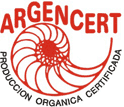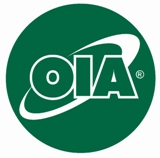Press Release:
Europe Information Service, European Report
SECTION: No. 3091,LENGTH: 294 words
HEADLINE: FARM COUNCIL : MEMBER STATES DIVIDED OVER LABELLING OF ORGANIC FOOD
EU Agriculture Ministers remain divided on the evolution of rules governing the marketing and labelling of organic food products. In the course of a policy debate during their Council meeting on 22 May, Ministers agreed to pursue discussions at expert level over the next couple of weeks (29 May and 8 June). The two proposals tabled in December, on which a rapid agreement does not appear to be in prospect, will then be passed on to the Finnish Presidency.
The principal difficulty concerns the labelling of organic products and notably the issue of whether or not to make the 'EU organic' logo compulsory. Several delegations fear a loss of visibility for consumers of organic products if national logos are withdrawn too rapidly. However, Agriculture Commissioner Mariann Fischer Boel insisted 'there is no contradiction between the European logo and national logos', arguing that 'co-existence can be entirely peaceful'.
GMOsalso put in an appearance in the debate on organic farming, as the new proposals would require at least 95% of the final product to be organic, except if the GM content is due to accidental contamination and does not exceed 0.9%. Ten or so delegations demanded a threshold for labelling products containing GMOs below the 0.9% imposed for foods in general, such as 0.1% or 0% contamination. Mrs Fischer Boel is categorically opposed to this demand, fearing it would result in a sharp increase in the price of such products, and insists a measure of flexibility is necessary.
The same goes for another issue discussed in this context, namely the inclusion of mass catering in the scope of the Regulation. Many delegations back the notion, provided member states retain scope for setting rules at national level
LOAD-DATE: May 22, 2006
SECTION: No. 3091,?LENGTH: 294 words
HEADLINE: FARM COUNCIL : MINISTERS TO CONSIDER PAYING FARMERS GM CONTAMINATION DAMAGES
It looks as though a solution to the problem of co-existence of genetically-modified crops with conventional and organic farming will have to be found within the framework of existing EU law. The three-page set of conclusions on genetic engineering adopted by EU Agriculture Ministers on 22 May (with only Greece abstaining) reflects discussions on the subject at the conference staged by the Austrian Presidency in April and calls on the European Commission to come up with common labelling thresholds for seeds and explore sustainable solutions for areas where farm structures and conditions make co-existence difficult for a given crop.
Besides the contamination thresholds for seeds, demanded by the member states, the conclusions highlight the need for clearer rules at EU level than provided in the Commission's July 2003 Recommendation. Agriculture Commissioner Mariann Fischer Boel is opposed to legislation on this issue, but would apparently be prepared to consider new, clearer recommendations on specific GMOs.
Ministers asked the EU executive to look further into farmer liability and compensation mechanisms in the event of GM contamination of conventional crops. A study on provisions introduced by the member states and technical aspects of contamination will be launched by the Commission in June. The issue of a joint framework will notably be considered.
Above all, Ministers emphasised the need to introduce purity standards for seeds. Mrs Fischer Boel did not oppose a stricter accidental contamination threshold than the existing 0.9% for foods, but suggested she is currently technically unable to propose a figure. The member states believe thresholds for seeds are vital to guarantee a viable approach to co-existence
















